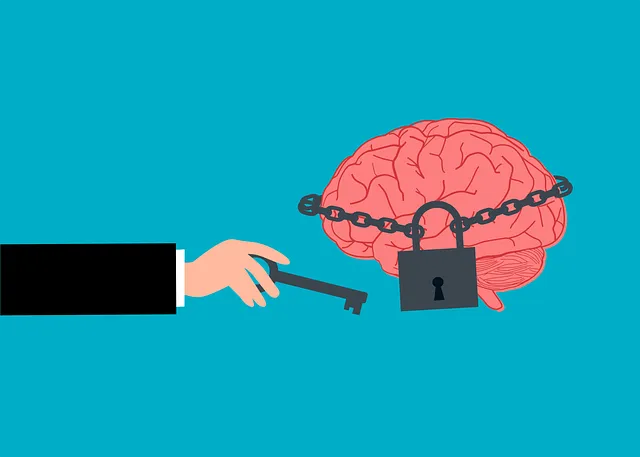Wheat Ridge Kaiser Permanente behavioral health services focus on building resilience as a key component of well-being, offering specialized programs that target Risk, Resilience, and Strength (RFS). These evidence-based practices aim to help individuals manage trauma and mood through understanding emotional responses, coping mechanisms, and internal strengths. The holistic approach fosters personal growth, enhances quality of life, and empowers people to navigate challenges with resilience and confidence. Their resilience exercises teach mindfulness, cognitive reframing, and positive self-talk, while evaluation methods assess both quantitative and qualitative data for program effectiveness, ensuring engaging and beneficial support for clients.
Resilience is a vital asset in navigating life’s challenges, and the RFM (Resilience, Flexibility, and Mastery) model offers a structured approach to building this strength. This article explores how Wheat Ridge Kaiser Permanente Behavioral Health Services integrates RFM exercises for personal growth. We’ll delve into the benefits of these programs, their implementation strategies, and methods for measuring success. By understanding RFM’s role in behavioral health, individuals can access powerful tools to enhance resilience and overall well-being.
- Understanding RFM and Its Role in Resilience Building
- Wheat Ridge Kaiser Permanente Behavioral Health Services: An Overview
- Implementing Effective Resilience Exercises for Personal Growth
- Measuring Success: Evaluating the Impact of RFM Programs
Understanding RFM and Its Role in Resilience Building

Resilience is a key component to overall well-being, and Wheat Ridge Kaiser Permanente behavioral health services recognize this. They offer specialized programs focused on RFM (or Risk, Resilience, and Strength factors) as a means of fostering inner strength development. This approach aims to identify and build upon an individual’s inherent resilience, helping them navigate challenges and overcome adversity.
By understanding one’s RFM, individuals can gain valuable insights into their emotional responses and coping mechanisms. The process involves recognizing risk factors that may contribute to mental health struggles, while also identifying strengths and resources that promote resilience. This holistic perspective equips folks with the tools needed for trauma support services and mood management, enabling them to lead more balanced and fulfilling lives.
Wheat Ridge Kaiser Permanente Behavioral Health Services: An Overview

Wheat Ridge Kaiser Permanente Behavioral Health Services stands as a beacon of hope and healing for those seeking support for their mental and emotional well-being. This facility, nestled in the heart of Wheat Ridge, offers a comprehensive range of services designed to empower individuals and foster resilience. Their expert team provides specialized care, addressing various challenges, from stress management and anxiety disorders to depression and trauma. Through innovative therapy sessions and tailored programs, Kaiser Permanente aims to help clients regain control and enhance their overall quality of life.
The behavioral health services here prioritize holistic well-being, focusing not just on treating symptoms but on empowering individuals with tools for long-term resilience. This includes a range of evidence-based practices aimed at self-esteem improvement, burnout prevention, and emotional healing processes. By creating a safe and supportive environment, Kaiser Permanente enables clients to navigate life’s challenges with newfound strength and confidence.
Implementing Effective Resilience Exercises for Personal Growth

Resilience exercises play a pivotal role in personal growth and overall well-being. At Wheat Ridge Kaiser Permanente behavioral health services, professionals emphasize the importance of incorporating effective resilience strategies into daily routines. These exercises help individuals navigate life’s challenges with greater ease, fostering emotional well-being promotion techniques that can mitigate stress and anxiety relief. By designing activities that encourage mindfulness, cognitive reframing, and positive self-talk, behavioral health experts empower clients to build mental health awareness and develop coping mechanisms for the long term.
Through structured resilience building exercises, individuals learn to view setbacks as opportunities for growth rather than insurmountable barriers. This mindset shift is crucial in enhancing one’s ability to bounce back from adverse situations, fostering a sense of control and empowerment. By engaging in these practices consistently, individuals can strengthen their mental fortitude, improve emotional regulation, and cultivate a deeper understanding of their own capabilities, ultimately contributing to holistic personal development and improved quality of life.
Measuring Success: Evaluating the Impact of RFM Programs

Evaluating the success of Resilience-Building Programs (RFP) is paramount to understanding their true impact on individuals’ lives and well-being. At Wheat Ridge Kaiser Permanente behavioral health services, we utilize a comprehensive approach to assess progress and measure outcomes. This involves tracking key performance indicators (KPIs) that go beyond simple participation rates.
By combining quantitative data such as survey responses with qualitative insights from client feedback, we gain a holistic view of program effectiveness. We assess improvements in emotional intelligence, communication strategies, and even the reduction of mental illness stigma – all crucial aspects that contribute to long-term resilience and overall well-being. This multifaceted evaluation strategy ensures that our RFP initiatives are not only engaging but also profoundly beneficial for those seeking support at Wheat Ridge Kaiser Permanente.
Resilience is a powerful tool for personal growth, and the RFM model offers a structured approach to developing this crucial skill. As demonstrated by Wheat Ridge Kaiser Permanente Behavioral Health Services, integrating resilience-building exercises into healthcare programs can have significant benefits. By combining evidence-based practices with tailored activities, individuals can enhance their ability to navigate life’s challenges. Measuring the impact of these programs is essential for continuous improvement, ensuring that every individual has access to the resources they need to build mental fortitude and adapt to change.






